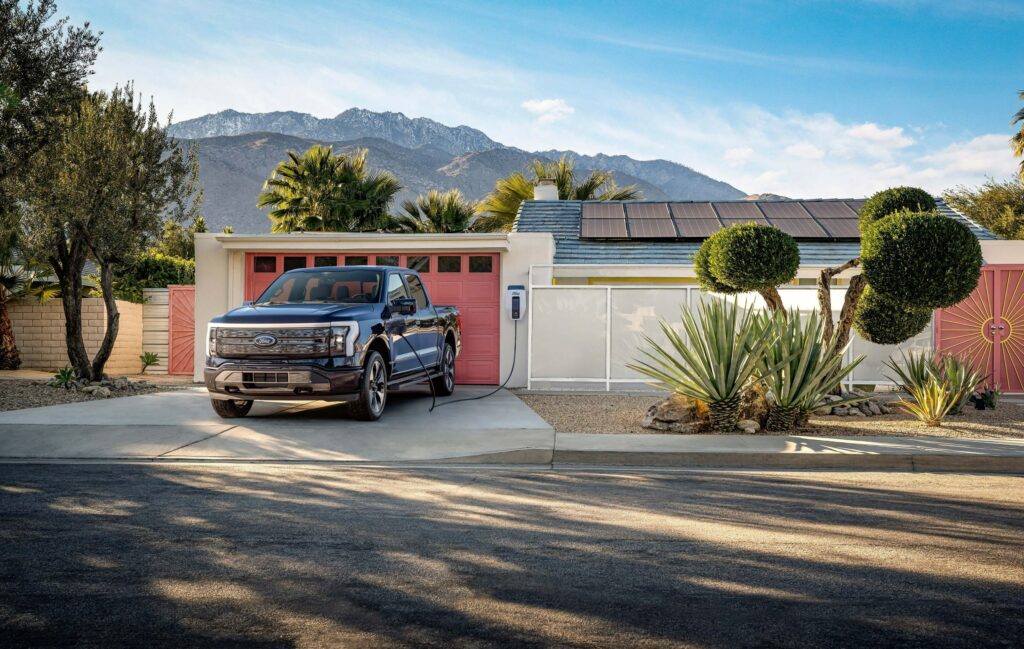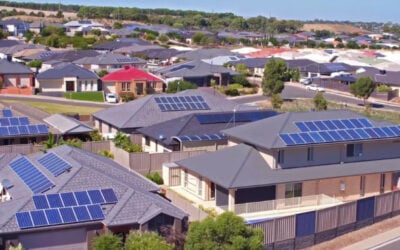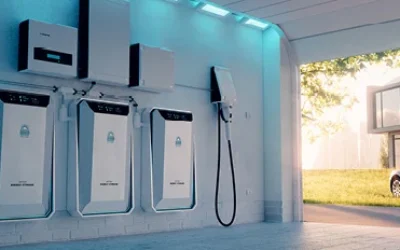
This edition of news in brief focuses on recent developments in the US distributed energy resources (DER) market.
Ford truck’s V2G capabilities tested by Duke Energy
Enjoy 12 months of exclusive analysis
- Regular insight and analysis of the industry’s biggest developments
- In-depth interviews with the industry’s leading figures
- Annual digital subscription to the PV Tech Power journal
- Discounts on Solar Media’s portfolio of events, in-person and virtual
US utility holding company Duke Energy is launching a test and evaluation programme for vehicle-to-grid (V2G) technology, starting with Ford’s new F-150 Lightning electric truck.
Vehicles with large lithium-ion batteries could be used to power homes during grid outages and could also be made available to provide grid services to utilities.
With the launch of the F-150, Ford has already partnered with residential solar and storage installer Sunrun to market the EV as a home backup source.
Now, Duke Energy will try out the trucks themselves, as well as Ford’s charging equipment and bidirectional charging infrastructure for their capabilities in providing power to the grid during peak times as well as behind-the-meter applications like integration of onsite solar generation and serving as backup.
The testing in real-world use cases will also assess how such usage can impact the F-150’s batteries over time.
Generac home batteries to provide capacity for Arizona utilities
Generac Grid Services has signed a multi-year contract with utility company Arizona Public Service (APS) to provide energy stored in customers’ battery systems to the grid.
Parent company Generac Power Systems is best known for its gensets and portable power supply equipment but has diversified into battery storage, launching its own Generac PWRCell range, including a new AC-coupled solution.
It has positioned the Generac Grid Services subsidiary to capitalise on opportunities for distributed energy resources (DERs) to provide services to aid the stability of electricity networks.
The company’s Concerto distributed energy resources management (DERM) platform will enable home or commercial behind-the-meter batteries to provide capacity to APS, as well as grid services like voltage control.
APS is encouraging its own customers to install smart energy technologies with a new Distributed Demand-Side Resources (DDSR) Aggregation Tariff. Generac was the only company bidding to be involved that could respond to the utility’s call for resources that could provide a wide range of services, the company claimed.
Aggregation of residential battery systems under the APS contract will begin in January 2023, for a five-year term.
PG&E appoints microgrid controls partner
Microgrid monitoring and controls provider New Sun Road has been picked by California investor-owned utility (IOU) Pacific Gas & Electric (PG&E).
New Sun Road’s Stellar Microgrid OS will be used to control and monitor PG&E’s fleet of hybrid renewable energy standalone power systems remotely.
Customers and communities in some of PG&E’s service area are vulnerable to wildfires and designated high-threat fire districts (HTFD). There are also customers in rural and remote areas to whom sending electricity along long distribution line infrastructure – often passing through HFTD areas – can be an expensive endeavour.
Instead, standalone power systems can form a sort of localised grid network to ensure customers’ lights stay on, while enabling greater uptake of renewable energy generated onsite or nearby.
Systems use a combination of solar PV, battery storage and propane-fuelled backup. New Sun Road’s tech will be installed at up to 30 systems by 2026, with PG&E looking to scale up its microgrid programme further.
“New Sun Road’s Stellar platform will manage PG&E’s fleet of standalone systems, ensuring maximised solar usage and high reliability. Stellar remotely operates systems in over 23 countries, and we’re proud that our technology will now enable more resilient clean energy in California,” New Sun Road CEO and co-founder Jalel Sager said.






